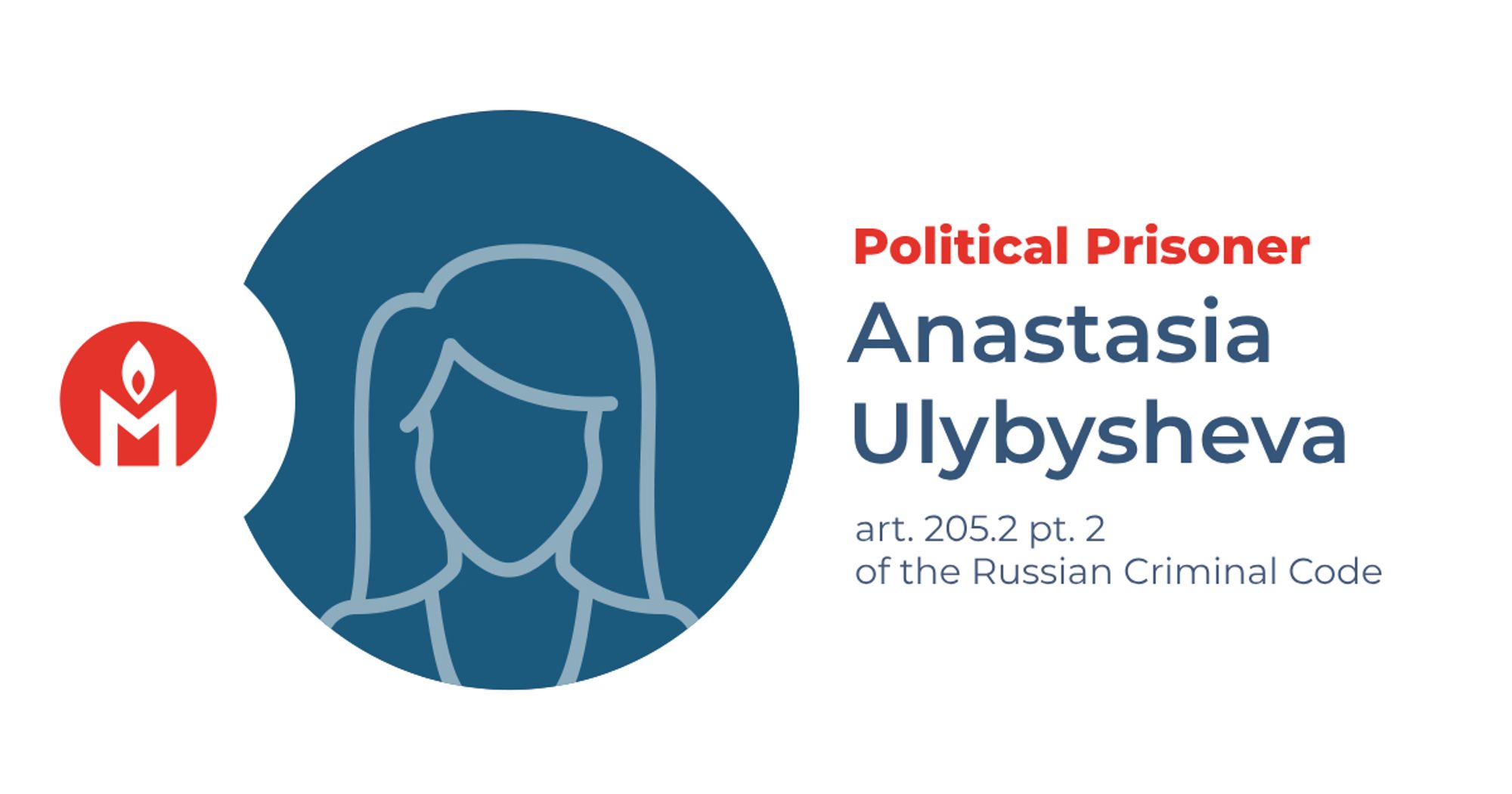Anastasia Ulybysheva is a political prisoner
The student faces up to seven years’ imprisonment for posts about the explosion on the Crimean Bridge in a private Telegram channel
The ‘Political Prisoners. Memorial’ human rights project, in accordance with international standards, considers Anastasia Ulybysheva a political prisoner. Ulybysheva is being prosecuted on charges of incitement of terrorism for posts on Telegram. Ulybysheva’s prosecution violates her rights to freedom of expression and fair trial. We demand the immediate release of Anastasia Ulybysheva and that all criminal charges against her be dropped.

What are the charges against Anastasia Ulybysheva?
Anastasia Ulybysheva is a first-year student at Moscow State University for Psychology and Education. She had a private channel on Telegram, where she usually talked about her studies and posted photos from her walks. Sometimes Ulybysheva wrote on other topics. According to information available, in October 2022 she published two posts about the explosion on the Crimean Bridge.
More than a year later, on 17 November 2023, it became known that Ulybysheva was under criminal investigation for these online posts. The same day, she was placed under house arrest.
We do not know how the investigative authorities gained access to Ulybysheva’s private Telegram channel or what she wrote there. If convicted on charges of inciting terrorism (Article 205.2, Part 2, of the Russian Criminal Code), Ulybysheva faces up to seven years’ imprisonment.
Why do we consider Ulybysheva a political prisoner?
Anastasia Ulybysheva was placed under house arrest on charges of incitement of terrorism that are increasingly used by the authorities against dissidents.
While we do not know exactly what Ulybysheva wrote, the mere discussion of blowing up the Crimean Bridge cannot be classified as incitement of terrorism. The explosions on the bridge were not acts of terrorism, but military actions in the course of Russia’s war against Ukraine. The Crimean Bridge, which was illegally built in Ukrainian territorial waters, is a symbol of the Russian occupation of Crimea and is of strategic importance for the Russian army. The bridge is therefore a legitimate target for the Ukrainian armed forces. Attempts at blowing it up are actions intended to gain a military advantage, rather than intimidate the population. Such actions cannot therefore be classified as terrorism.
In any case, the student’s posts in a private Telegram channel could in no way influence the decision-making of the Ukrainian armed forces or create a danger to the public in any other way.
A detailed description of the case of Anastasia Ulybysheva and our position are available on our website.
Recognition of an individual as a political prisoner does not imply the ‘Political Prisoners. Memorial’ human rights project agrees with, or approves, their views, statements, or actions.
How can you help?
You can donate to support all political prisoners in Russia.жертвование для помощи всем политзаключённым.
